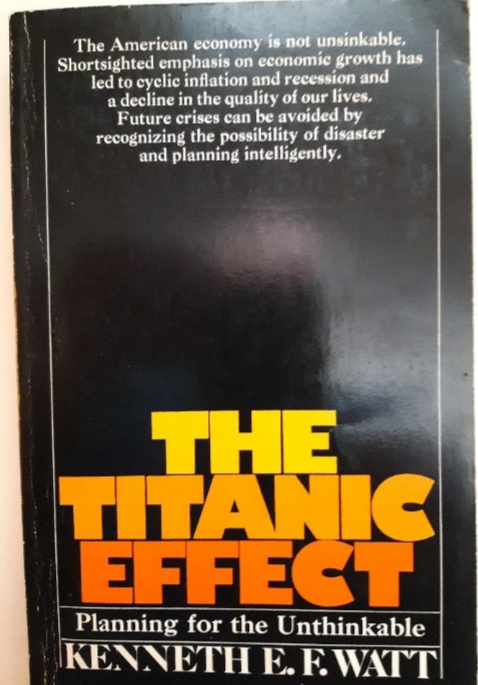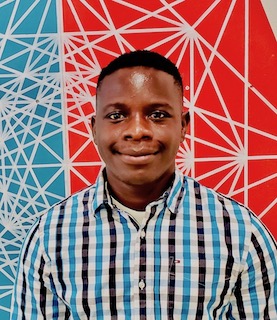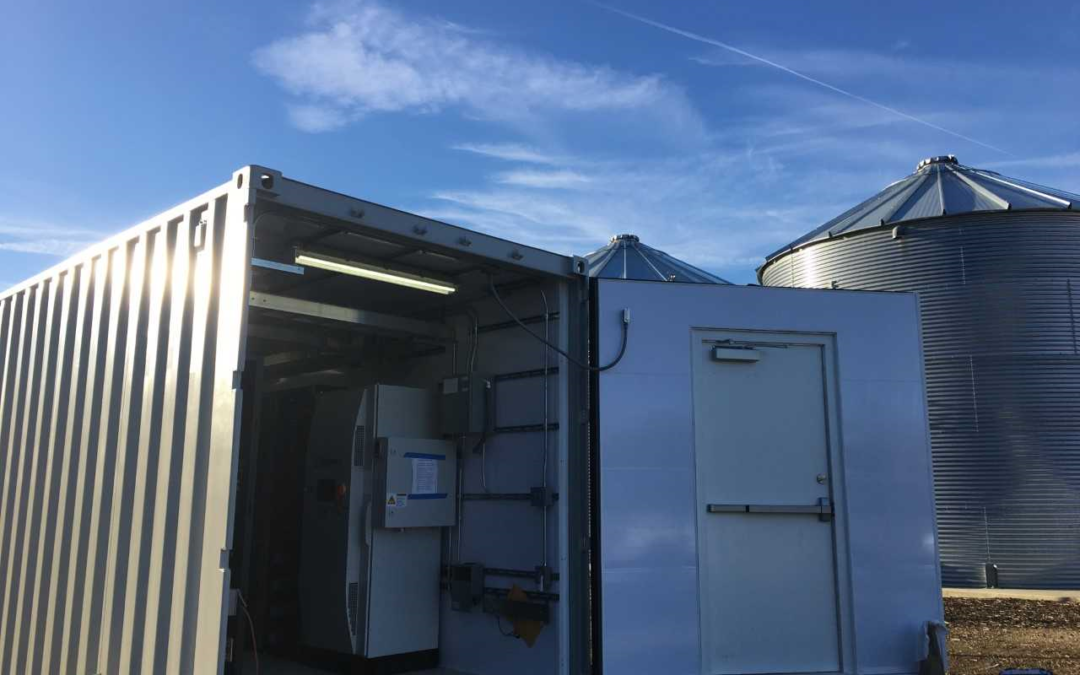No Results Found
The page you requested could not be found. Try refining your search, or use the navigation above to locate the post.

This week on April 22 is the 50th anniversary of that first Earth Day in 1970. One of my first blogs here described how that day had a profound effect on my career, changing from medicine to environmental science. It is also how I ended up at UC Davis. It was one of two schools that actually offered a graduate degree in the area. The other was Cornell. I was accepted at both. It was an easy choice. UC Davis had a scholarship fund sponsored by the Rockefeller Brothers Foundation and that provided a full ride plus a research assistantship. Cornell did not. My wife and I packed our bags at Indiana University and started the drive west to go to a school and a town I had never set foot in before. It was a leap of faith.
I remember we arrived in Davis and fell in love with it. We both had the same reaction, “We’re never leaving this place.” From that day, I have never been without a home in Davis. I have rented it out several times while working in Texas, Connecticut, and Massachusetts, but always came back. Here I am still.
It was at Davis that I had another epiphany. I came there to work on the ecology of lakes and streams. My undergraduate degree was in microbiology so it seemed a logical extension. Part of that time as an undergraduate was spent doing research in Yellowstone Park. My IU professor Tom Brock and one of his graduate students had discovered a strange bacterium called Thermus Aquaticus that grew in boiling water there. That led to a revolution in DNA analysis, but that’s another story. If you are curious, read this.
However, in my first year at UC Davis, I took a class from Prof. Ken Watt on emerging environmental issues. We had to do a term paper. Scientific American had just run an issue focusing on energy as one of the biggest of those issues, so I chose that topic. Prof. Watt told me if I wanted to focus on energy, I should read an important scientific paper by a chemist working for Royal Dutch Shell by the name of John M. O’Bockris. It was on the importance of a hydrogen economy and how that might work. But Watt pointed me to one paragraph where O’Bockris wrote that continued burning of fossil fuels was going to increase the concentration of carbon dioxide in the atmosphere. Because of its greenhouse effect that extra carbon dioxide would raise the average global temperature. Watt simply said, “I think that has tremendous implications and you should think out where that would lead.” Actually, since that day I have never stopped thinking about it. It hit me like a pie in the face. How soon would it happen? How could you figure that out? What could you do about It? What would it take?


Prof. Watt was in the process of writing a book he titled The Titanic Effect. Its theme was that there were a number of huge environmental challenges ahead of the world like icebergs in the North Atlantic, but that the first reaction would be denial…until you hit one of them. After the shock of the surprise, the first response would be to rely on technology to solve the problem and avoid any economic consequences. The next step was overconfidence in that solution until attention waned and the next collision would be a whopper with huge economic impacts. Prophetic book. Most thought it was too radical. It’s out of print. But I got to help on the chapter on energy and earned a small acknowledgment.
I can’t say my career has been a straight line from then to now. It’s actually been a lot more random. But that early warning about global climate change is always something I remember.
How different things are 50 years later, but how predictable. O’Bockris gave the world the gift of a huge heads-up with enough time to do something about it. Of course, the reaction to that 1962 article was denial and of course that just made things worse. Prof. Watt was not so radical after all, just ahead of his time. And now we are in the midst of another “unexpected” collision with an iceberg called COVID-19. It’s a classic pattern. And now I’m thinking about those classes in virology and epidemiology I took at IU. Full circle.
I am grateful for all the places fate has taken me, but looking back I am particularly grateful for having grown up in a time when science and education were regarded as important. Turns out, they were.

ABOUT THE AUTHOR
Gary Simon is the Chair of CleanStarts Board. A seasoned energy executive and entrepreneur with 45 years of experience in business, government, and non-profits.

Weintraub | Tobin, EY, Stoel Rives
BlueTech Valley, PowerSoft.biz
College of Engineering & Computer Science at Sacramento State

CleanStart To Do’s are a twice-weekly online conversations about what you can add to your To Do list while observing the COVID-19 orders to self-isolate. Join us on Tuesday mornings from 9:00-9:30 a.m. or Thursday afternoons from 4:00 to 4:30 p.m. when we interview our featured guests and ask them for their recommendations on how entrepreneurs and innovators can not only cope, but thrive, during this unprecedented time. Our guest for this session is Benjamin Finkelor. Ben is Executive Director of the UC Davis Energy and Efficiency Institute. He has served in a variety of roles within the clean technology sector, including director of business development for a local clean-energy start-up company, interim executive director for CleanStart, and as a clean tech analyst for the private equity arm of the California Public Employees’ Retirement System (CalPERS).
The page you requested could not be found. Try refining your search, or use the navigation above to locate the post.

Weintraub | Tobin, EY, Stoel Rives,
Greenberg Traurig LLP, BlueTech Valley,
Buchalter, Moss Adams, PowerSoft.biz
College of Engineering & Computer Science
at Sacramento State
Follow us on Social Media to keep upto date!

Nothing can dim the light that shines from within (-Maya Angelou). That is why RAF Electronics is such a cool company. With ambition, Dick Flasck (cofounder), followed advice connecting with California’s education system and cleantech economy.
RAF Electronics is a 2019 CALSEED awardee pioneering new technologies to dramatically improve directional lighting by using nonimaging optics (optimal transfer of light radiation between a source and a target) to produce high technology lighting. The RAF lighting solution offers a line of cool running, ultra-efficient, full-spectrum Theatrical Spotlights. Looking like traditional Theater Spotlights, they differ by using proprietary technology of nonimaging reflector optics to reduce energy consumption for both customers and utilities.
RAF Electronics started out of curiosity when Dick Flask was developing light engines for HD projectors. He encountered difficulty placing light from the light source on small target areas no matter how hard he tried. His solution to that was etendue matching and nonimaging optics which has been the backbone behind the success of the company.
Initially pushed by his Vice President to pursue developing the technology RAF Electronics engaged their network and connected to California colleges and universities to work with students refining their project. RAF connected with CleanStart Partner Blue Tech Valley and Fresno State’s business school to accelerate their development. Doing so helped them identify beachhead markets and build a business model. For example, after identifying Stage Lights and Theater Companies RAF connected with Fresno State’s Theater Arts Department Professor Liz Crifasi, to better understand the customer and make better decisions regarding the functional aspects of the spotlights. Central Valley technical support also comes from UC Merced and Blue Dolphin Engineering.
We are excited to watch RAF Electronics grow as Dick Flask bootstraps his company with his Vice President. We will be inviting them to a future CleanStart event to share how they have leveraged the resources in California to grow.

ABOUT THE AUTHOR
Osato Evbuomwan is a CSU Sacramento Mechanical Engineering Graduate Student who is the newest associate at CleanStart. Growing up in Nigeria with smog from backup diesel/ gasoline generators inspired Osato to work towards building a sustainable future for the world.

Weintraub | Tobin, EY, Stoel Rives, Revrnt, Hacker Lab
BlueTech Valley, Buchalter, Moss Adams, PowerSoft.biz
College of Engineering & Computer Science at Sacramento State

We have commented in blogs, hosted meetups and done workshops on the opportunity for clean tech businesses in microgrids. We see roles for the utilities to become skilled managers of multiple microgrids as well as for vendors of equipment and software to build and control microgrids locally. A new market research report puts some forecasts to this thought. ASDReports has issued its report “Microgrid Market by Connectivity (Grid Connected and Off-Grid Connected), Offering (Hardware and Software & Services), End-Use (Commercial & Industrial, Remote, Institutes & Campuses), Grid Type, Pattern, Region – Global Forecast to 2025”. The report says microgrids are “projected to reach $47.4 billion by 2025 from USD $28.6 billion in 2020, at a CAGR of 10.6% between 2020 and 2025. Rising demand for clean energy, increasing instances of cyberattacks on energy infrastructures, growing requirement for reliable & secure global power supply, and rising global deployment of microgrids for rural electrification are key factors driving the market growth. Furthermore, the expansion of renewable energy capacity of countries in APAC and government initiatives to encourage the development of microgrids are the opportunities for microgrid developers.”
That’s a lot of money. The report takes a pretty broad view of what constitutes a microgrid, leading to the $28 billion figure for 2020, more than most would expect. You can find more details here. The report is a bit expensive. But the summary provided at the link gives some key insights for free.

ABOUT THE AUTHOR
Gary Simon is the Chair of CleanStarts Board. A seasoned energy executive and entrepreneur with 45 years of experience in business, government, and non-profits.

Weintraub | Tobin, EY, Stoel Rives
BlueTech Valley, PowerSoft.biz
College of Engineering & Computer Science at Sacramento State
